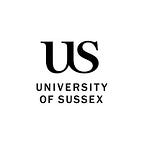“I’ve never seen a student voted in with a joke manifesto”
Paul Newton, chief executive of the University of Sussex Students’ Union (USSU), has seen how students bring about change for good.
I fell into being a students’ union chief executive. I went to Dartington Art College and started off as a graphic designer here in 1995 before becoming the Student Union’s marketing manager and then general manager.
I used to be employed by the University, but in 2006 the law changed and students’ unions became their own independent charities. All the staff were moved across and my job title changed as well. There are 50 permanent staff and about 280 student staff working in shops and bars, which fluctuates throughout the year. We also have about 1000 volunteers who help during events.
We elect six union officers every year, but the complexity of the organisation means that you can’t really give it to a bunch of students fresh out of university to run without some assistance. The SU is a multi-million pound charity. There’s a huge amount of responsibility and lot to learn.
I make sure that whatever it is we are doing is legal, and I will then help enact it. I don’t get involved in the politics. Whatever the Union chooses to support or boycott is something for them to decide.
Since the growth in student numbers we have got better at understanding the needs of all our students, not just those who are political and engaged. Across the sector funding for unions is going up because universities understand that a key part of your academic experience is extra curricula activity. We took part in research which showed that being part of a community — especially sports clubs and societies — benefits your mental wellbeing. It’s not just about support services, the SU can help massively in preventing students developing mental health issues.
Compared with other universities, Sussex students are quite serious and earnest. Our elections are far less about personality than lots of other students’ unions and much more about policy. It’s good. In all the years I have been here I’ve never seen a student being voted into office with a joke manifesto.
The officers I have worked with have always deep down wanted to change the world. It might be in a small way, but often it’s a big way. That’s why it’s interesting to see that after their time at Sussex they often go into human rights law or political campaigning. Our previous presidents include Sam Gurney who’s regional secretary for the Trades Union Congress (TUC), human rights lawyer Kat Craig, and Dan Glass, who famously superglued himself to Gordon Brown when he was Prime Minister as part of a protest against the aviation industry.
Sussex students are at the forefront of a lot of societal change. The Mandela Scholarship was set up by the Sussex Students’ Union. During apartheid they helped to smuggled people out of Africa. You realise the struggle people went to in order to get a degree. Things we think nothing of now because they seem completely normal were once what “crazy students” were into: Gay rights, gay marriage, transgender support, where we are in terms of identifying what constitutes a hate crime. It really was the student movement that shifted that stuff.
I have a really nice life at Sussex. I don’t need to work anywhere else. This is a very vibrant place, and working with young people keeps you young. Part of my job is to teach them how to run an organisation but every year I learn something from them. It’s definitely a two-way process.
Interview by Jacqui Bealing
This profile is part of our This Sussex Life series.
Visit the University of Sussex website
